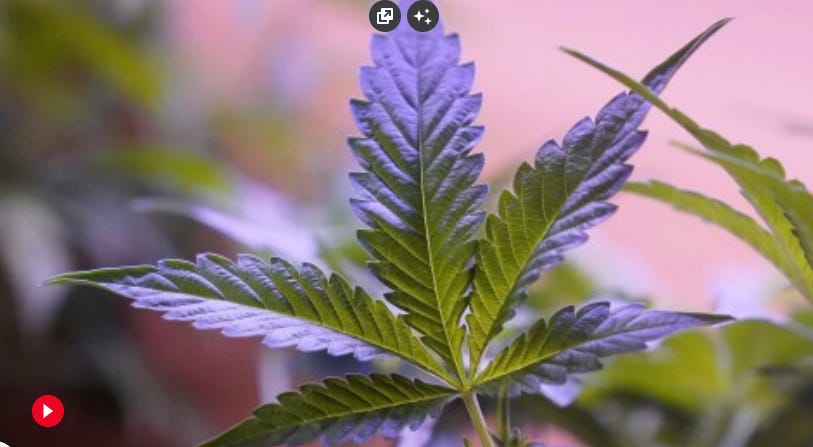Daily marijuana use outpaces daily drinking in the US, a new study says
For the first time, the number of Americans who use marijuana just about every day has surpassed the number who drink that often
By Carla K. Johnson
For the first time, the number of Americans who use marijuana just about every day has surpassed the number who drink that often, a shift some 40 years in the making as recreational pot use became more mainstream and legal in nearly half of U.S. states.
In 2022, an estimated 17.7 million people reported using marijuana daily or near-daily compared to 14.7 million daily or near-daily drinkers, according an analysis of national survey data. In 1992, when daily pot use hit a low point, less than 1 million people said they used marijuana nearly every day.
Alcohol is still more widely used, but 2022 was the first time this intensive level of marijuana use overtook daily and near-daily drinking, said the study’s author, Jonathan Caulkins, a cannabis policy researcher at Carnegie Mellon University.
“A good 40% of current cannabis users are using it daily or near daily, a pattern that is more associated with tobacco use than typical alcohol use,” Caulkins said.
The research, based on data from the National Survey on Drug Use and Health, was published Wednesday in the journal Addiction. The survey is a highly regarded source of self-reported estimates of tobacco, alcohol and drug use in the United States.
From 1992 to 2022, the per capita rate of reporting daily or near-daily marijuana use increased 15-fold. Caulkins acknowledged in the study that people may be more willing to report marijuana use as public acceptance grows, which could boost the increase.
Most states now allow medical or recreational marijuana, though it remains illegal at the federal level. In November, Florida voters will decide on a constitutional amendment allowing recreational cannabis, and the federal government is moving to reclassify marijuana as a less dangerous drug.
Research shows that high-frequency users are more likely to become addicted to marijuana, said Dr. David A. Gorelick, a psychiatry professor at the University of Maryland School of Medicine, who was not involved in the study.
The number of daily users suggests that more people are at risk for developing problematic cannabis use or addiction, Gorelick said.
“High frequency use also increases the risk of developing cannabis-associated psychosis,” a severe condition where a person loses touch with reality, he said.
The Associated Press Health and Science Department receives support from the Howard Hughes Medical Institute’s Science and Educational Media Group. The AP is solely responsible for all content.
Go paid at the $5 a month level, and we will send you both the PDF and e-Pub versions of “Government” - The Biggest Scam in History… Exposed! and a coupon code for 10% off anything in the Government-Scam.com/Store.
Go paid at the $50 a year level, and we will send you a free paperback edition of Etienne’s book “Government” - The Biggest Scam in History… Exposed! OR a 64GB Liberator flash drive if you live in the US. If you are international, we will give you a $10 credit towards shipping if you agree to pay the remainder.
Support us at the $250 Founding Member Level and get a signed high-resolution hardcover of “Government” + Liberator flash drive + Larken Rose’s The Most Dangerous Superstition + Art of Liberty Foundation Stickers delivered anywhere in the world. Our only option for signed copies besides catching Etienne @ an event.







Addiction in reference to cannabis is a bit silly... are people losing their jobs and families cause of their usage? Maybe some but nothing compared to alcohol and the other more dangerous drugs... and cannabis related psychosis where you lose touch with reality... which reality are we talking here???
I call BS on this statement, “High frequency use also increases the risk of developing cannabis-associated psychosis,”
I've smoked cannabis since I was 16, now 60+ and I have never, ever, lost touch with reality; however, it is more potent these days and I do not advise smoking it at work or while driving; nor has it led to use of stronger drugs, on the contrary. As for the woman who blamed cannabis as the reason she hacked her boyfriend to death, I also call BS.